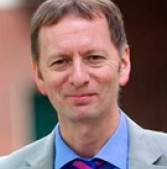Gratitude Multimedia
Critical to the Expanding Gratitude project is not only funding research on gratitude but also raising public awareness about the key findings and practical lessons from this research—a goal that’s consistent with the Greater Good Science Center’s general mission and activities.
In pursuit of that goal, the GGSC has produced a variety of multimedia resources:
1. Expanded coverage of gratitude on the GGSC’s online magazine, Greater Good. We have reported on the science of gratitude for more than a decade, but this reporting has been even more extensive—and has taken on greater depth and nuance—under the project. This has included updates on new research findings, in-depth articles by GGSC staff, and essays by gratitude researchers reporting on the results of their work.
The gratitude channel on Greater Good lists our latest stories on gratitude. Some highlights from our reporting include:
- “Four Great Gratitude Strategies,” by Juliana Breines
- “How Gratitude Beats Materialism,” by Jason Marsh and Dacher Keltner
- “Can Giving Thanks Help Us Heal from Trauma?” by Jeremy Adam Smith
- “Seven Ways to Foster Gratitude in Kids,” by Jeffrey Froh and Giacomo Bono
- “Should Women Thank Men for Doing the Dishes?” by Jeremy Adam Smith
- “Gratitude is for Lovers,” by Amie Gordon
- “Five Ways to Cultivate Gratitude at Work,” by Jeremy Adam Smith
- “Gratitude Activities for the Classroom,” by Vicki Zakrzewski
- “Why Gratitude is Good,” by Robert A. Emmons
- ... and read our “Gratitude Greatest Hits,” compiled by Jeremy Adam Smith.
This work has reached an even wider audience through syndication in outlets such as the Washington Post, HuffPost, and Mindful.
2. Gratitude Radio Specials. The GGSC has partnered with the Peabody Award-winning Ben Manilla Productions to produce a series of specials for public radio. First was “State of Gratitude”—a series of short pieces exploring different aspects of gratitude, such as the importance of gratitude in romantic relationships, in friendships, and in the workplace. The pieces aired on public radio stations nationwide around Thanksgiving of 2013 and can be heard here.
Building on that success, the GGSC and Ben Manilla Productions then co-produced The Science of Gratitude, an hour-long, documentary-style special narrated by Academy Award-winner Susan Sarandon that includes segments exploring gratitude’s role in health, happiness, education, and even death, combining the latest scientific findings with stories that bring the research to life.
Public Radio International distributed The Science of Gratitude to hundreds of public radio stations across North America in 2015 and 2016—including stations in New York, San Francisco, Chicago, Dallas/Fort Worth, Atlanta, and many other cities—and it was honored with a Gold Medal (in the Science & Technology category) at the 2016 International Radio Program Awards.
3. Gratitude Videos. The GGSC has also produced two series of videos on gratitude. One series is part of a broader series of parenting videos featuring the GGSC’s Christine Carter; the other features presentations from the Greater Good Gratitude Summit that it hosted in 2014, including talks by Jack Kornfield, Brother David Steindl-Rast, Robert Emmons, and many of the researchers whose work has been supported by the Expanding Gratitude project.
4. Thnx4 Digital Gratitude Journal. Building on years of research suggesting that keeping a “gratitude journal” is good for health and happiness, the GGSC created Thnx4.org, an online journal that allows users to record and share the people, events, and things for which they’re grateful. This unprecedented, web-based effort to track and promote the practice of gratitude worldwide also serves as an invaluable source of scientific data on gratitude: Users of Thnx4 can track their gratefulness over time, and these (anonymous) results will also be made available to the research community, though individual users can always opt to keep their data private.
Many of the GGSC’s gratitude partners have included Thnx4 as part of a Gratitude Challenge for their members, encouraging them to use Thnx4 for 21 days of thankfulness. Some of these early partnerships showed that Thnx4 gave a significant boost to users’ health and happiness. The GGSC will continue to report on Thnx4 partnerships, including those with Kaiser Permanente, Dignity Health, and the San Francisco Municipal Transportation Agency.
